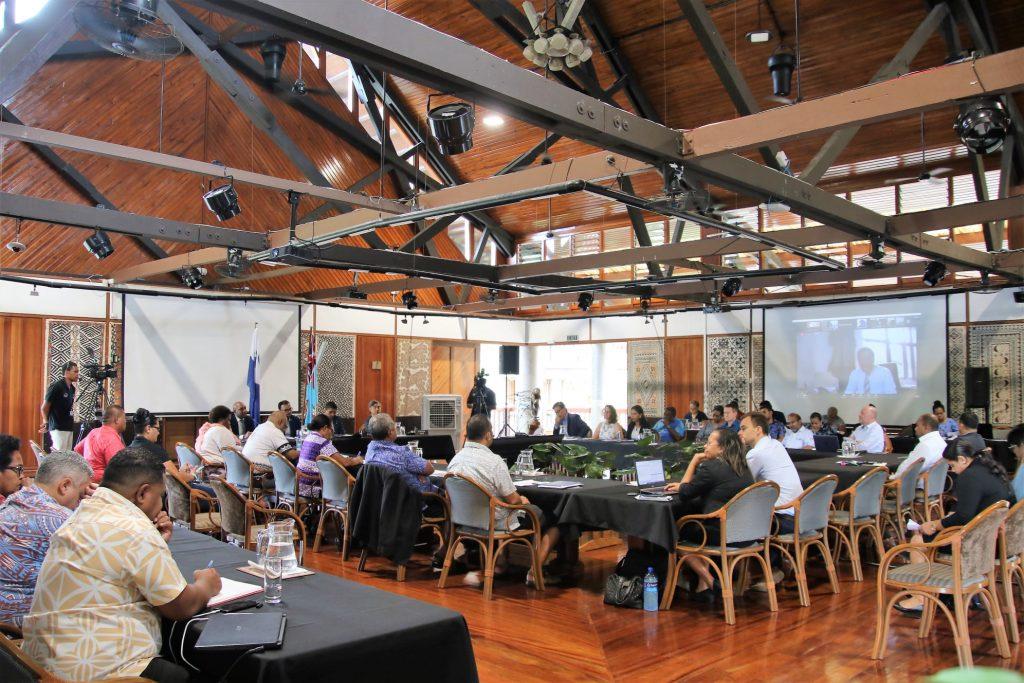Time for an independent think tank on Pacific security and foreign policy
Posted By Anthony Bergin and Transform Aqorau on July 23, 2021 @ 13:30

Good foreign policy and diplomacy and sound national security in the Pacific islands doesn’t just require solid ideas and good plans. It needs robust evidence of what works and a level of informed public debate on what options to pursue. These are often not available in the Pacific islands.
Advancing policy thinking in these areas sometimes requires questioning policy orthodoxies on regional diplomacy and security, and understanding the complexities around which public policies are developed in the islands.
Given all that has happened in the past two years, and the heightened geopolitical interest in the region, it’s time to establish an independent think tank in the Pacific on security and diplomacy to produce better quality foreign policy and security options for Pacific island governments. A Pacific think tank would assist in shaping creative new policy thinking in foreign policy and security to the benefit all island states.
In many parts of the world, think tanks play important roles in developing evidence and ideas for foreign and security policy and in offering a public space for the debate of crucial challenges in diplomacy and national security. They assist diplomats and policymakers with solid and original research as a foundation for making policy judgements.
For example, ASPI has been providing independent, high-level advice to the Australian government as a leading defence and strategic policy think tank since its establishment in 2001. It’s become a trusted source of counsel for Australian leaders and the general public. It leads national debates on defence spending, China, countering covert influence, foreign investment and the machinery of national security decision-making, among other issues.
It’s time that the Pacific island countries progress their foreign policy and national security decision-making with input from a regional think tank to promote informed debate on the crucial security and foreign policy challenges the region faces, including climate change, natural resource management, oceans governance and organised crime.
A regional think tank would offer ‘thinking space’ for island governments to interpret the geopolitical situation in the Pacific. Over time, a Pacific think tank would become the intellectual hub for the region, as well as an informal tool of regional diplomacy, by convening dialogues and workshops on foreign and security policy.
It would inform and lead the regional debate in these areas and ensure that international actors leverage key expertise in the islands. It would make an enormous contribution to the quality of debate among island leaders.
At the moment, the range of alternative views on which island governments can draw for foreign policy and security policy isn’t well developed.
The Australian-funded Pacific Security College is an educational body set up in the Australian National University and is trying to develop as a network. But some in the region view it as very Australian and ANU-centric. The new Pacific Fusion Centre to be opened in Vanuatu later this year should help in providing some longer-range assessments on regional security, and of course the Pacific Islands Forum can be commissioned to produce papers.
Regional and national universities in the Pacific are now mired in governance problems. More broadly, universities aren’t well placed to engage on the practicalities of public policy: they don’t have a sharp focus on better public policy, especially in areas that relate to foreign policy and security.
To be credible, a new Pacific think tank would need to be independent, with a governing board that shouldn’t be able to influence its policy recommendations. Short-term funding would undercut any new think tank’s independence. It would need to be resourced for at least 10 years to build an accepted place in the regional landscape.
Funding of around A$3 million (US$2.3 million ) a year over 10 years would set up a sustainable think tank with a critical mass. But it should also be required to grow its funding base through its own efforts. Possible funders might include Japan and the EU as well as private philanthropists. A new think tank might have a small physical presence but would have virtual links in many of the islands.
The think tank must be something that belongs to the Pacific. It couldn’t be seen as being led by external powers, although they might have a role in it. But a staff of non-islanders telling island states what their foreign policy and security problems are, as well as the solutions, wouldn’t be effective. It would risk being seen as a sort of ‘security colonialism’.
In sum, a new Pacific think tank would inform better quality national security policy options for island governments and offer alternative views to the islands’ own government departments.
A new think tank would help support debate and understanding in the islands on foreign policy and security matters. It would be long-term investment in Pacific islands security.
Article printed from The Strategist: https://aspistrategist.ru
URL to article: /time-for-an-independent-think-tank-on-pacific-security-and-foreign-policy/
Click here to print.